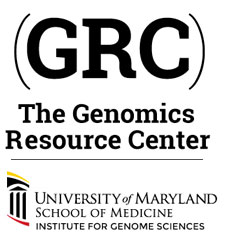For the 5th year in a row, we’re proud to be hosting the annual PacBio East Coast User Group Meeting (UGM) & Workshops on June 27 & June 28 at the School of Pharmacy. The UGM is a great opportunity to hear how scientists are using SMRT Sequencing to advance their research, a chance to learn best practices, and an opportunity to hear about application success stories. The agenda features speakers from Johns Hopkins University, The Jackson Laboratory, New England Biolabs, Massachusetts General Hospital and Harvard Medical School, University of Massachusetts Medical School, North Carolina State University, University of Florida & more. In addition, PacBio staff will be on-hand to answer questions, share insights, and talk about the technology road map.
Two SMRT Sequencing interactive workshops take place on campus on June 27th:
- From 9am – 1pm, the Bioinformatics Workshop will highlight new tools available within SMRT Analysis 4.x. The PacBio Bioinformatics team will share analysis guidance for ensuring genomes are publication ready, as well as discuss various multiplexed analyses available through SMRT Link and enabled by the latest protocols for the Sequel System.
- From 2pm – 6pm, the Sample Prep Workshop will cover product updates, application updates, and sample preparation recommendations to achieve the longest reads possible. Interactive group breakout sessions will facilitate discussions about specific applications of SMRT Sequencing.
Register online to attend these events.
New to PacBio sequencing? We’re offering a chance to win sequencing and analysis on our new Sequel System. The Microbial SMRT Grant program is open until June 30 and entering is simple: just submit a brief application describing how you’d use the long reads, high accuracy, single-molecule resolution, and uniform coverage of SMRT Sequencing to fully characterize viruses, microbes, and/or their communities.
One winner will be chosen by a panel of scientists. Submit your entry today!

